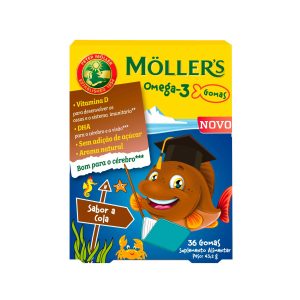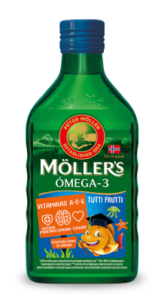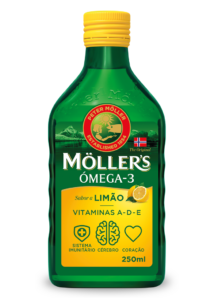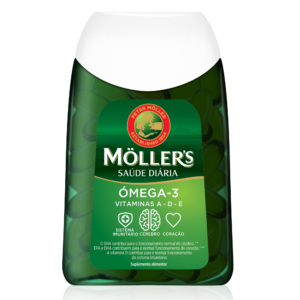While your energy requirements decrease in old age, your requirement for vitamins and minerals stays the same, with a few exceptions*. And because you don’t need as much energy, you eat less. This means it can be difficult to get all the nutrients you need, which may lead to malnutrition. But there are steps you can take to prevent this.
Home » Preventing malnutrition in old age

More articles about healthy aging here
Malnutrition, or undernourishment, is a condition that occurs when the body’s requirements for energy and nutrients are not fulfilled through diet and drinks over a period of time. This leads to reduced protein and fat reserves in the body, loss of weight, reduced muscle and tissue mass, and vitamin and mineral deficiency.
Illnesses and diseases can directly or indirectly lead to malnutrition and, conversely, malnutrition can lead to increased risk of illness and complications following an illness. An illness may increase the need for nutrients, while reducing the body’s ability to absorb nutrients, or it may lead to a loss of appetite – both of which may cause malnutrition.
Other reasons for malnourishment could be loss of appetite due to, as already mentioned, being less active or maybe because your taste buds have changed or aren’t functioning properly.
Who is at risk?
Malnutrition is usually not a problem in First World countries, but some groups, such as older people, are more at risk than others. Besides the elderly, people with poor general health, eating disorders or chronic long-term illnesses are also at risk for malnutrition, as are lonely people and alcoholics.
When the body is undernourished, it doesn’t have the essential vitamins and minerals it needs to stay healthy. Typical adverse effects of malnourishment include fatigue, low body temperature, loss of muscle mass, loss of appetite, wounds taking longer to heal, poor blood circulation, osteoporosis, a weak immune system, and increased risk of infections.
What you can do to prevent malnutrition in old age
There are several steps you can take to prevent malnutrition and create a healthy diet for yourself. It’s important to have a nutritional plan with several and more nutrient-dense meals to ensure your nutritional requirements are met – especially when it comes to protein intake. If you eat little food, it’s good to add energy-boosting drinks such as full fat milk in your coffee, yoghurt, and smoothies.
Energy-boosting snacks
Sometimes you might be hungry but don’t feel like eating a full meal. This is where it helps to have healthy snacks on hand that don’t need much preparation. Some ideas for energy-boosting snacks are:
- A handful of nuts, raisins and dried fruit
- Ice-cream and other desserts
- Yoghurt with berries
- Avocado with prawns and mayonnaise
- Hot chocolate and whipped cream
- Soups with a base of full-fat milk or cooking cream
- Waffles with sour cream and jam
- Egg dishes
It’s a good idea to make a weekly menu plan. This will ensure you eat enough food and get an accurate daily intake of nutrients, vitamins and minerals. In order to eat enough food, it’s important to create a good rhythm and avoid skipping meals.
Important nutrients
Nutrients such as vitamin D, iron, calcium, vitamin C and omega-3 are very important for your health. Good sources of these include:
- Calcium – from milk and dairy products such as yoghurt, cottage cheese, cultured dairy products and cheese
- Vitamin D – from fatty fish, Möller’s Cod Liver Oil and skimmed milk
- Iron – from wholegrain bread, liver paté, organ meats, meat and poultry
- Vitamin C – from fruit, fruit juices, potatoes, berries and vegetables
- Omega-3 – from fatty fish, Möller’s Cod Liver Oil and Möller’s Original Capsules
Drink enough water
It’s also important to drink enough water, a minimum of 1.5 litres every day. When your cells have a fluid deficiency, you might feel thirsty. Always drink when you are thirsty to maintain a correct level of fluid in your body. It’s also easier to become dehydrated when you are older, which could be a result of adipsia (decreased or absent feelings of thirst). This condition could lead to headaches, poor appetite, loss of energy, and mental confusion. So make sure you drink plenty of water even if you aren’t thirsty!
It’s the sum total of what you eat and drink, and how much and how often you eat, that determines your overall health in the long run. Make sure to eat regularly so that you can keep healthy and avoid malnutrition in your golden years.
*The recommended daily intake of vitamin D increases for both men and women after 75 years of age, and the recommended daily intake of iron for women decreases from 15 to 9 mg/day after menopause.
What is good health?
Do you have a good lifestyle?
Lifestyle simply means the way in which you live. Health and lifestyle go hand in hand. You might feel you have a good lifestyle if you are physically active, eat healthily and generally experience a sense of wellbeing. Conversely, if you want good health you should also have a good lifestyle.
Physical activity is the major contributor to a good lifestyle, but diet, drugs, stress, sleep and social conditions are also play an important role. Being able to use the body properly to avoid injury also affects lifestyle. Physical activity can also prevent depression and help you to recover more quickly from mental illness, both of which obviously affect your lifestyle.
Diet can be a difficult topic for many. Perhaps you eat too much or too little or maybe you find it hard to know what foods to combine to have a balanced diet. It’s also important to eat food that contains important vitamins, minerals and dietary fibre, omega-3 and antioxidants. On top of all this, you also need to get enough energy, protein and the correct fatty acids. The requirement for these nutrients changes throughout your life. When you are older you also have different requirements than children and younger adults. Women also have different requirements than men. Pregnant and breastfeeding mothers also have special requirements.
When you get older, you lose muscle mass and your body requires less energy and therefore less food. You may lead a less active life than you did before, which is why you require less food. However, your need for minerals, vitamins and other nutrients remains the same. Of course, there are plenty of healthy and active older people, but when you reach 70 to 80 years of age, it’s easier to become ill, especially during flu season.
Some steps you can take to improve your lifestyle and health are to:
- eat a healthy and varied diet
- stay active
- watch your weight
- avoid too much alcohol and don’t smoke
- get enough sleep
- think positive
- practise good hygiene
What is good quality of life?
The World Health Organisation (WHO) defines quality of life as a state where the individual can realise their potential, cope with normal stressful situations, work in a rewarding and positive way, and be able to contribute to others and society.
Quality of life is a wide and somewhat diffuse concept that includes joy in, and a desire for, life. These are values that are rather felt than measured, which in turn are based on personal environment and choices. Quality of life doesn’t necessarily depend on being healthy or sick. It’s the moments between worries, sorrows, problems and ailments that matter. For example, if you have a chronic illness, a feeling of mastery can be important when talking about quality of life.
To sum up, quality of life is a combination of health, lifestyle, networks and social support. It’s about experiencing joy, meaning in life, satisfaction, security and a sense of belonging, as well as being able to use your strengths. It’s also about feeling interest in life, coping with everyday situations and a being committed to something or someone. If you have good quality of life, you will be able to cope better with the inevitable stressful situations in life.
Learn more
Programa de exercícios para idosos
Healthy Aging Healthy Bones
Dieta saudável durante a gravidez
Brain Healthy Aging
Boa saúde, estilo de vida e qualidade de vida – O que tudo isso significa?
Cod Liver Oil Healthy Aging








